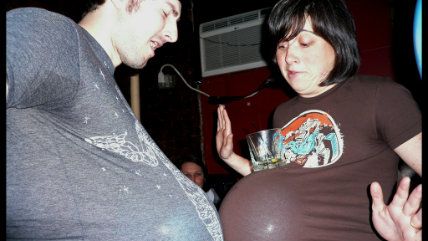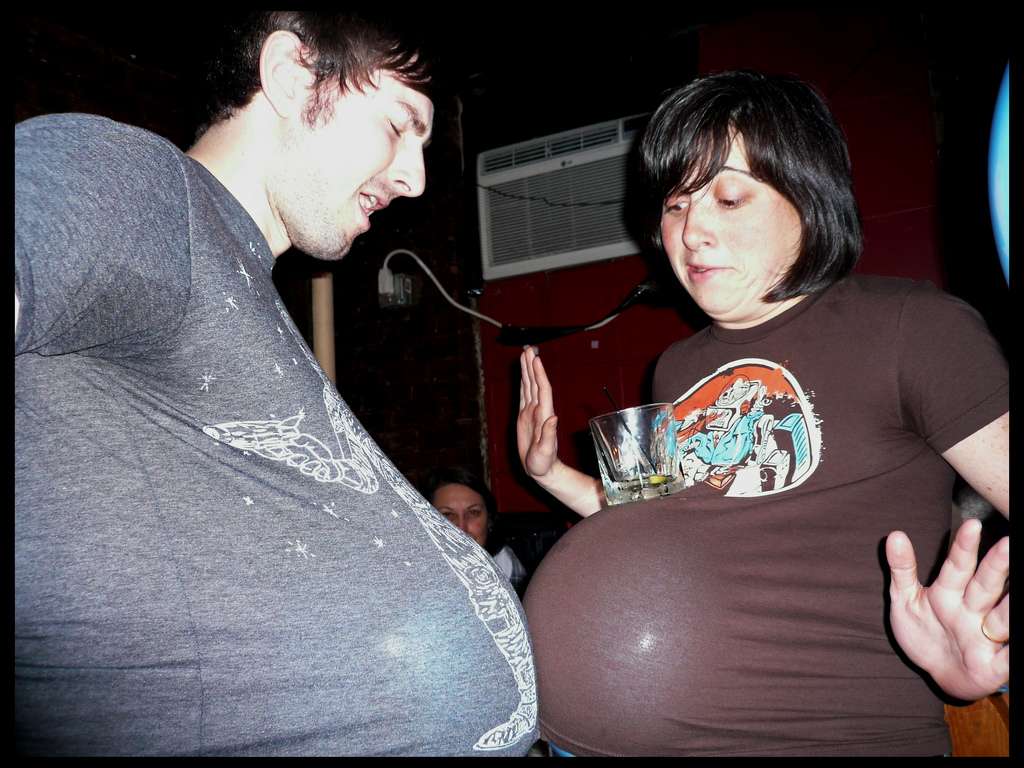Bartenders Can't Refuse to Serve Pregnant Women in New York City
New guidelines also say pumping breast milk at work must be permitted and require "reasonable accommodations" for employees who have recently miscarried or aborted a pregnancy.


The New York City Human Rights Commission (NYCHRC) has issued a memo to local bartenders, servers, and food-business owners: refusing to serve alcohol or certain foods, such as raw fish, to pregnant women violates the city's human rights law. "Judgments and stereotypes about how pregnant individuals should behave, their physical capabilities and what is or is not healthy for a fetus are pervasive in our society and cannot be used as pretext for unlawful discriminatory decisions," the commission says.
The guidance was part of a wide-ranging NYCHRC document explaining how the city's anti-discrimination statutes apply to pregnant women. "Pregnancy discrimination," it explains, is seen as a form of gender-based discrimination for purposes of public accommodations, housing, and employment in New York City. "Any policy that singles out pregnant individuals is unlawful disparate treatment under the [New York City Human Rights Law (NYCHRL)] unless the covered entity can demonstrate a legitimate non-discriminatory justification for the distinction," the guidance states.
Illegal actions include "those that categorically exclude pregnant workers or workers who are capable of becoming pregnant from specific job categories or positions, deny entrance to pregnant individuals to certain public accommodations, or refuse to serve certain food or drinks to pregnant individuals or individuals perceived to be pregnant." Examples of violations include "a restaurant policy that prohibits staff from serving pregnant individuals raw fish or alcohol," "a blanket exclusion of pregnant individuals from hospital inpatient drug detoxification programs," or "an employer requir[ing] pregnant employees to take unpaid leave at a certain month in their pregnancy."
The guidance also spells out illegal behavior "rooted in stereotypes or assumptions regarding pregnancy," which includes an employer choosing "not to assign a pregnant employee to a new project after learning they are pregnant because he is concerned that the worker will be distracted by the pregnancy" or "a bouncer [denying] a pregnant individual entrance to a bar based on the belief that pregnant individuals should not be going to bars and/or drinking alcohol."
And those aren't even likely to be the most controversial bits. Other elements of the guidance include:
- Employers must allow "modest and/or temporary accommodations" to pregnant employees, including "minor changes in work schedules; adjustments to uniform requirements or dress codes; additional water or snack breaks; allowing an individual to eat at their work station; extra bathroom breaks or additional breaks to rest; and physical modifications to a work station, including the addition of a fan or a seat."
- Absent "undue hardship, an employer must provide a clean, sanitary, and private space, other than a bathroom, that is shielded from view and free from public intrusion from coworkers," for women who have recently been pregnant to "to express milk," in addition to "a refrigerator to store breast milk." If an employee would rather pump breast milk at their desk or usual work station, they "shall be permitted to do this so long as it does not create an undue hardship for the employer, regardless of whether a coworker, client, or customer expresses discomfort."
- Employees who have recently miscarried or aborted a pregnancy "are entitled to reasonable accommodations from their employers," including "a period of unpaid leave to recover or a more flexible schedule for a period of time to account for additional appointments related to the procedure or experience." The employer is permitted to request medical documentation.
With all of the above, the commission claims to be merely clarifying what's required under existing law (most specifically, New York City's 2013 "Pregnant Workers Fairness Act"), not expanding the city's anti-discrimination protections.


Show Comments (134)